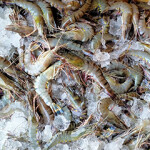Illegal trade in shark products dismissed by UK fish and chip industry
University of Exeter researchers, studying the DNA of shark products sold in fishmongers, fish and chip shops, and Asian wholesalers in England, believe they have uncovered serious cases of mislabeling and a potential trade in critically endangered species.
However, their findings have been largely dismissed by the National Federation of Fish Friers (NFFF), which said in a statement that the fish sold in fish and chip outlets is all legally sourced.
The scientists found that 90 percent of products sold at fish and chip shops under umbrella terms such as huss, rock salmon, and rock eel, were actually spiny dogfish (Squalus acanthias). Landings of this fish into the European Union by E.U. and third-country vessels have been prohibited from the Northeast Atlantic since 2011 because it is classified as critically endangered on the International Union for Conservation of Nature (IUCN) red list of threatened species.
Other species identified include blue sharks, Pacific spiny dogfish, nursehounds, and starry smoothounds, most of which are not in threatened categories, but they only made up a small minority of the samples.
The team warned that use of umbrella terms, with many species labeled under the same designation, does not follow E.U. legislation on seafood labeling. It also inhibits informed consumer choice, and creates a situation where demand for spiny dogfish could more easily and cheaply be supplied by breaking the zero TAC in the E.U.
Andrew Crook, president of the NFFF, told SeafoodSource that his organization works closely with the Marine Stewardship Council (MSC) and the Marine Conservation Society (MCS), and he believes that his members and the wider fish-frying community operate in a sustainable manner.
“Having spoken to industry suppliers, one of which is the largest suppliers of rock salmon in the U.K. market, I am confident that the Squalus acanthias they import is sourced from North American/Canadian MSC-Certified sustainable fisheries,” Crook said.
The Exeter study looked at 117 tissue samples from shark meat products from 90 different retailers. Seventy-eight of these were battered and fried and originated from fish and chip shops and 39 were either fresh or frozen and bought from fishmongers.
In addition, dried skinned and bleached sharkfins, destined for sale in Asian restaurants and supermarkets, were purchased from wholesalers and tested alongside a consignment of dried shark fins originating from Mozambique, which had been seized by U.K. customs officials.
The researchers used mini-barcodes to identify the species type from the dried shark fins, and in doing so, clocked up a European first.
The shark-fin analysis produced some of the most interesting results, and these are not disputed. Despite the very small sample size, a range of threatened species were detected, most notably the endangered, Convention on International Trade in Endangered Species of Wild Fauna and Flora (CITES)-listed scalloped hammerhead shark, the shortfin mako, and smalleye hammerhead sharks.
The wholesalers revealed they did not have CITES permits, did not know which species they were, and that the fins had been imported from Asia within the previous year, which strongly suggests a prohibited import.
Since the 1980s, global demand has risen considerably for shark fins, and this trade is largely due to the economic growth in Asian economies, especially China, where shark fin soup is a popular celebratory dish.
“The discovery of endangered hammerhead sharks highlights how widespread the sale of declining species really is – even reaching Europe and the U.K.,” said Andrew Griffiths, of the University of Exeter. “Separate investigations focusing on Asia have commonly identified scalloped hammerhead in fin processing.”
According to the FAO, there was a 42 percent increase in global chondrichthian (cartilaginous fish including sharks, skates and rays) meat imports between 2000 and 2011. Total world imports of shark meat were 121,641 metric tons in 2011, valued at USD 379.8 million (EUR 332.7 million).
However, the “Global Priorities for Conserving Sharks and Rays: A 2015-2025 Strategy" report suggests that these figures are likely to be a massive underestimation, due to inadequate reporting, artisanal market trade, and the incorrect labeling of species. This is compounded by the fact that the number of sharks caught from undeclared bycatch and in illegal, unreported, and unregulated (IUU) fisheries probably far outweighs those from legal fisheries.
The Exeter team reported that supplies of spiny dogfish are sourced increasingly from questionable fisheries in South America, Africa, and the Pacific, as well as from sustainable stocks in Canada and New Zealand.
The researchers called on the U.K. government to introduce more accurate food labeling, with the species clearly identified at the point of sale to consumers, to enable people to know what species they are eating and where it comes from.
Crook pointed out that as an industry, fish friers firmly believe in point-of-sale labeling for all fish species.
“We encourage NFFF and non-members alike to showcase and display the catch information, including the species on offer, the area in which it was caught, and the vessel it was caught on,” he said.
Image by WCS Indonesia






Share